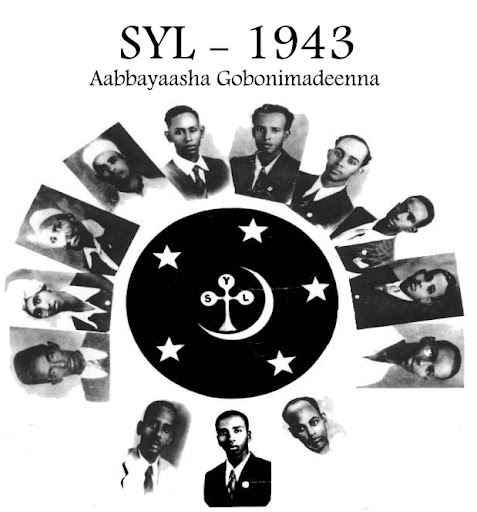Mogadishu, SONNA – Today, May 15th, Somalia proudly commemorates Somali Youth Day, a date etched in the nation’s history as a prove to the pivotal role of its young people in the struggle for independence and the ongoing journey of nation-building. This day serves as a powerful reminder that the vibrancy, energy, and unwavering dedication of youth are indispensable for the progress, security, and prosperity of any nation.
While the annals of Somali history recount earlier instances of resistance against colonial incursions in the 15th and early 19th centuries, the period around World War II witnessed the emergence of organized political movements determined to end the modern colonial exploitation driven by economic interests. These movements, distinct from the era of slavery which had been outlawed globally, recognized the need for a unified and concerted effort to achieve genuine self-determination.
The year 1943 marked a watershed moment with the formation of the Somali Youth Club (SYC). Thirteen educated young individuals, driven by a shared vision of national unity and complete independence, came together to form this groundbreaking organization. Their collective action ignited a flame of patriotism and laid the foundation for the future of Somalia.
Inspired by the spirit of the SYC in the northern regions, a similar movement emerged under the banner of the Somali National League (SNL). Mirroring the aspirations of their southern counterparts, the SNL also championed the cause of Somali unity, further solidifying the growing sentiment for a unified and independent nation.
In 1947, the Somali Youth Club underwent a significant transformation, rebranding itself as the Somali Youth Liberation League (SYL). This name change reflected the organization’s evolving goals and its commitment to achieving independence. The SYL became a unifying force, drawing together Somalis from all walks of life who yearned for self-governance.
The subsequent year, 1948, witnessed the SYL’s remarkable ability to mobilize widespread movements for independence across various regions of the country and even extending its influence into neighboring territories inhabited by Somalis, including parts of Kenya, Ethiopia, and Djibouti. Their message resonated deeply with the Somali people, igniting a powerful wave of nationalist sentiment.
A crucial milestone was reached in 1949 when the SYL successfully presented a detailed document to the United Nations Headquarters, outlining the prevailing colonial situation and articulating the Somali people’s fervent desire for independence. This advocacy at the international stage played a vital role in shaping global opinion. Consequently, on April 1, 1950, Somalia was granted a ten-year period under a trusteeship, a crucial step towards full sovereignty that allowed for the development of the necessary governmental structures.
Between 1956 and 1960, the SYL took on the responsibility of leading the Internal or Provisional Government. This period of self-governance, supported by the wisdom of religious scholars, the experience of traditional elders, the dedication of women, the skills of workers, and the insights of intellectuals, was instrumental in preparing Somalia for the responsibilities of an independent nation.
Notably, during this period, the SNL in the northern regions demonstrated their commitment to Somali unity by seamlessly integrating their efforts into the broader movement for independence, without imposing any preconditions. This spirit of collaboration and shared aspiration was crucial in achieving the unified nation that emerged in 1960.
As we reflect on the journey to independence, it is vital to remember the countless sacrifices made by individuals from all segments of Somali society. Many bravely risked and tragically lost their lives in support of the SYL’s activities and the overarching Somali independence movement. Conversely, history also notes the presence of a small number of individuals who resisted the call for independence, choosing instead to align themselves with the colonial administration.
Today, May 15th stands as a solemn and proud national day in Somalia, dedicated to commemorating the founding of the Somali Youth League. This organization holds the distinction of being the first political entity established in the country, spearheading the arduous yet ultimately successful struggle for the liberation of the Somali people and their land.
On this significant occasion, it is imperative to emphasize the ongoing responsibility of Somali youth in the present and future development of the nation. Just as their predecessors played a decisive role in achieving independence, today’s youth must actively engage in development programs, contribute their talents and energies, and participate in safeguarding the nation and striving for a prosperous future as an equal member of the global community.
The youth of today, the inheritors of the legacy of the SYL, are expected to draw inspiration from the dedication and unity displayed by the founding youth league. Simultaneously, they must remain vigilant and aware of any tactics or strategies employed by those who might seek to hinder Somalia’s progress towards prosperity and development.
In these challenging times, the youth hold the key to achieving lasting peace and sustainable development in Somalia. They require guidance, mentorship, and opportunities to contribute meaningfully to the nation’s advancement, defense, and the restoration of security and stability.
Therefore, on this 82nd anniversary of the founding of the Somali Youth League, we extend our heartfelt congratulations to all Somali youth, wherever they may be and whatever challenges they may face.
Finally, we express our sincere wishes for the continued progress and a bright future for the Somali youth, a future that holds the promise of a prosperous and fulfilling life for all.





